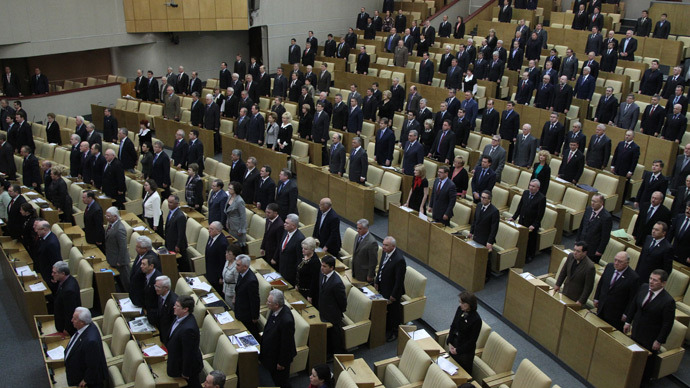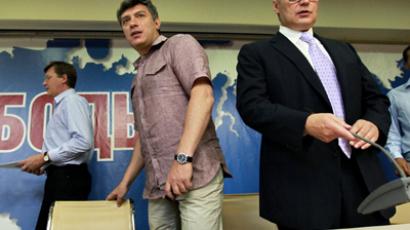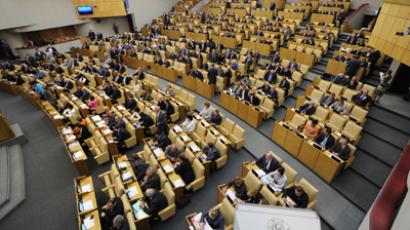Duma gives first approval to Putin bill on mixed election procedure

Russia’s lower house has approved the first reading of a bill returning independent constituencies to the federal parliamentary polls.
The bill drafted by the presidential administration in line with Vladimir Putin’s 2012 address to the parliament in which the Russian leader pledged personal support to the move suggested by politicians and political experts . It was passed in the first reading by 296 against 148 with one abstention.
The current draft returns the previous mixed composition of the parliament with half of the 450 MPs being elected on party lists and the other half – in independent electoral districts. These constituencies will be territorial areas with approximately the same number of voters.
The draft law allows both independent and party candidates to run in the electoral districts, but it does not allow parties to form blocs to support single candidates. Independent candidates would have to back their initiatives by submitting letters of support signed by at least 0.5 percent of all voters registered in the constituency.
The parties are allowed to back non-partisan candidates but not members of other parties. Also party members should form at least one half of the total number of candidates on a party list. It is allowed that the party that supports a candidate in an independent constituency can put the same person on the party election list.
All registered candidates are entitled to free air time for electoral propaganda and the maximum elections budget is set at 700 million roubles (about $3.3 million) for a political party and 15 million roubles (under $500,000) for an independent candidate.
Another important part is that local election commissions will lose the right to remove election monitors from polling stations even if such monitors violate the law. After the bill is passed such decisions would be only taken by a court.
As the bill was drafted politicians, analysts noted that it favors the smaller parties that started to appear in Russia after the recent liberalization of the corresponding law.
These smaller parties have already commented on the bill, saying they favored the re-introduction of independent electoral districts, but were disappointed that electoral blocs would not be allowed. Two major parties holding seats in the current parliament – the Liberal Democrats and the Communists – said they opposed the bill, calling it an outdated throwback.
The head of the Liberal Democrats, Vladimir Zhirinovsky, reiterated his stance on Tuesday saying that the independent candidates would likely merge with a majority caucus in search of support and instead of favoring political competition the bill would actually reduce it. Zhirinovsky warned that the bill opened the parliament to a radical opposition.














